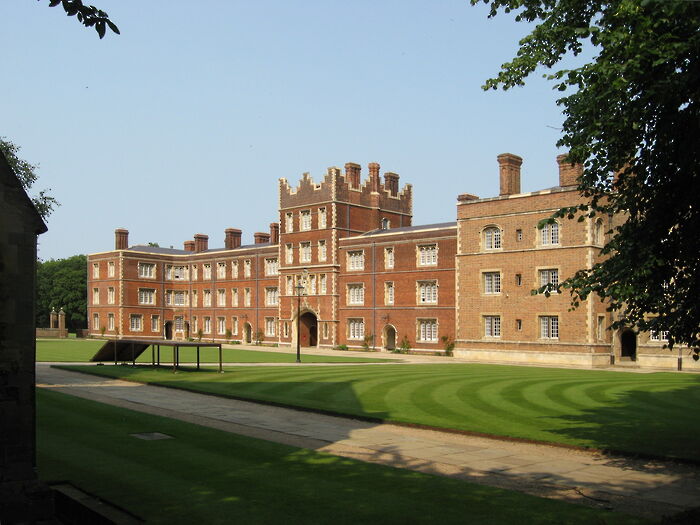Huawei accused of ‘reputation laundering’ after Jesus collaboration
Jesus College emphasises that “Huawei cannot veto the publication of views, research findings or conclusions”

Huawei, a Chinese technology multinational, has been accused of “reputation laundering” after it was discovered that the company funded a Cambridge University College study.
The study, published two weeks ago, focuses on global governance reforms in communications and technology, with contributors from academia, politics, and business. Huawei is the only company with more than one contributor in the paper.
This white paper was a result of a conference held last October at Jesus College as part of its China-UK Global Issues Dialogue Centre, funded by a research grant given by Huawei. The conference was attended by representatives from technological firms including Huawei but also Google, Facebook, Alibaba, United Nations Conference on Trade and Development, the ITU, and OECD.
The study claims that the grant “was accepted under an agreement between the parties to uphold the principle of academic freedom, and act to encourage and support open and free inquiry and dialogue in research collaborations.”
One of the propositions of the study used Huawei as a model: “For example, to stimulate competitors, all intellectual property associated with 5G has been made freely available by the CEO of Huawei, making this a fruitful time to be a European technology company working on these issues.”
An acknowledgement that various countries “have blocked Huawei, citing intelligence concerns” but stated that “there is currently no independent institution able to adjudicate whether these concerns are valid.” was included in the report.
However, Bob Seely, a Tory on the Commons Foreign Affairs Committee, told The Times that the arrangement “looks like reputation laundering”. Moreover, Matthew Henderson, of the Henry Jackson Society, commented that “It is deeply disturbing that Huawei has been able to buy itself a publication endorsed by Cambridge University”.
A Jesus College spokesperson told Varsity: "We work with a range of international partners to support research and innovation, maintaining robust academic freedom at all times.
"Jesus College Cambridge and Huawei have a two-year research and innovation agreement, exploring global telecommunications and technology development. The China-UK Global Issues Dialogue Centre owns all research results; Huawei cannot veto the publication of views, research findings or conclusions.”
The China-UK Global Issues Dialogue Centre says on their website that it is “committed to promoting active dialogue between academics, policy makers and business people around major issues we face in the world today and tomorrow, and in which China has an increasingly important interest”.
Last week, it was announced that the London School of Economics approved a three-year project in the development of 5G technology funded by Huawei. OpenDemocracy had access to internal documents that showed that the university was to receive £105,000 from the Chinese company to fund this research.
Labour MP Chris Bryant criticised this decision in a conversation with openDemocracy: “Chinese companies are deliberately seeking well-respected UK universities to launder their reputation”.
In November 2017, BT and Huawei announced a 5-year initiative with the aim of establishing a joint research and collaboration group at the University of Cambridge.
Professor Stephen Toope, Vice-Chancellor at the University of Cambridge, commented on this project saying: “By working with BT and Huawei we will be able to demonstrate that the insights delivered through our research have a broad impact.”
This group was going to be backed by up to £25 million in funding and contributions over the following five years and their research would focus on issues regarding “photonics, digital and access network infrastructure and media technologies alongside work aimed at enhancing the societal impact of communications technologies”.
Last year, Oxford University announced that it would suspend donations from Huawei, after accusations that China was using its ties to “subvert” academic institutions. Other universities such as Stanford University and Massachusetts Institute of Technology (MIT) shortly made similar announcements.
Professor Anthony Glees, head of the Centre for Security and Intelligence Studies at the University of Buckingham, told The Telegraph that companies like Huawei's of “buying reputations and influence” and stressed that donations needed to be “regulated and ethically sound”.
 Features / Cloudbusting: happy 10th birthday to the building you’ve never heard of30 March 2025
Features / Cloudbusting: happy 10th birthday to the building you’ve never heard of30 March 2025 News / Uni offers AI course for Lloyds employees30 March 2025
News / Uni offers AI course for Lloyds employees30 March 2025 News / Caius clock hand returned nearly 100 years after student prank31 March 2025
News / Caius clock hand returned nearly 100 years after student prank31 March 2025 News / Ski mask-wearing teens break into Caius accommodation27 March 2025
News / Ski mask-wearing teens break into Caius accommodation27 March 2025 News / Write for Varsity this Easter31 March 2025
News / Write for Varsity this Easter31 March 2025






